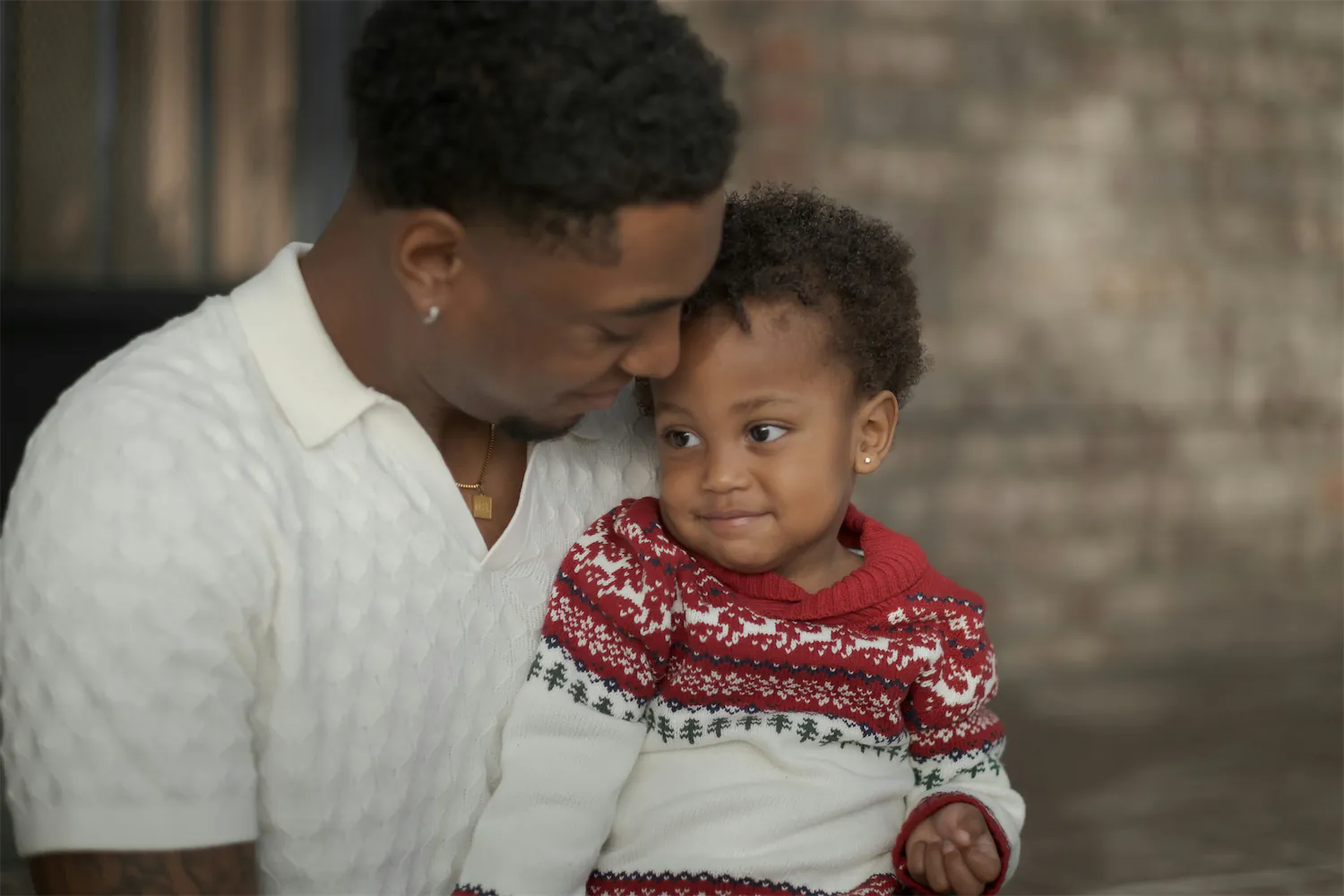Am I overfeeding my baby?
Am I overfeeding my baby?
Understanding hunger and fullness cues
Understanding hunger and fullness cues

Dahlia Rimmon, RDN
Content Writer

Nicole Silber, RD, CSP, CLC
Dietitian



Hunger cues: Signs that your newborn baby is hungry
Hunger cues signal that your baby is ready for some breast milk or infant formula. When your baby is hungry, they'll show you in a few different ways:
Rooting: Your baby will turn their head towards the breast or bottle to look for milk.
Eye movement: Your baby's eyes will flicker or move rapidly under semi-closed or closed eyelids.
Restless sleep: Your baby may not sleep as soundly, and may move around more than usual.
Mood changes: Hungry babies can be fussy or irritable.
Eating movements with their mouths: Sometimes, a baby will also open and close their mouths to indicate hunger.
Physical signs: If you have an older baby, they might show they're hungry by reaching for your food, grabbing your breast or their bottle, or crawling up to their highchair.
Crying is actually a late sign of hunger and usually signals your baby has gone too long without milk. It might be a bit of trial and error as you learn your baby’s hunger cues, but the goal is to feed your baby before they get to this point. Overly hungry babies may not feed well, leading to even more crying and fussiness.
How to calm your newborn if they're overly hungry
If your baby has gone too long without milk, they may be overly hungry and cranky. This is a great time to practice some soothing techniques to help them calm them down before feeding:
Practice skin-to-skin contact
Offer cuddles and kisses until they can calm down
Sing a soft song and gently rock back and forth
Fullness cues: Signs that your baby is full
Here are some signs that your baby’s is full, whether they are breastfeeding or bottle feeding:
They appear very sleepy.
They turn their head away from the breast or bottle.
Their lips are closed, even as you try to feed them.They swat the bottle or breast away.
They don't seem interested when you offer more breast milk or infant formula.
Can I overfeed my baby?
It is difficult to overfeed a baby. For breastfed babies, overfeeding is rare since breastfed babies control the pace of sucking and feeding. Breastfeeding demands more effort, with milk typically flowing at a slower rate. On the other hand, bottle feeding delivers milk faster, which may lead to overfeeding.
Babies are sometimes fed too often with too many ounces of milk. But again, before true overfeeding happens, your baby will typically show signs of discomfort and will reject the bottle or breast. Some parents are concerned their babies aren't getting enough milk, and try to "top off" a nursing session with infant formula, which is often unnecessary.
What are the signs of overfeeding?
Overfeeding signs are more obvious and severe and include:
Excessive or projectile spit-up
Vomiting
Extreme discomfort after feeds
Responsive feeding
It’s important to prevent overfeeding for babies more than one month old. Practice responsive feeding by paying attention to your baby's cues and body language rather than only aiming for a specific number of ounces each day. Every baby is different and needs can vary, so it is important to consider these fluctuations.
If your baby finishes a bottle or pulls away from the breast, but is still rooting, looking for more milk, or crying, they might still be hungry. But if your baby is nodding off, turning away, or pushing the bottle away, it’s time for a break or a big burp.
Newborns, especially preterm or underweight babies, are usually sleepier, smaller, and weigh less, and may need more frequent feeds for medical reasons. It may be necessary to wake a sleeping baby to finish a feed, change their diaper, or feed them while they sleep.
FAQs: Your baby’s appetite
Are babies born with the ability to self-regulate hunger and fullness?
Yes, but some babies need help pacing their feeds. Your local or Summer Health pediatrician or lactation consultant can provide additional guidance on paced feeding.
How long is too long to breastfeed a newborn?
If you are breastfeeding your baby, there will be a learning period for everyone involved: you and your baby. In the early weeks, most newborns will breastfeed anywhere from 20 to 45 minutes. As they become more skilled at latching, sucking, and getting the milk they need, the length of nursing sessions will likely shorten. Breastfeeding sessions may last for just 10 or 15 minutes.
If your baby is breastfeeding for an hour or more at a time, speak to a lactation consultant. They may be having trouble getting enough milk.
How does paced bottle feeding work?
First, watch your baby feed, then take them off the bottle for a break or a burp. If your baby chokes, gulps, sounds like they are taking in a lot of air, or has extreme spit-up or reflux, they may need help with pacing. Changing to a slow-flow nipple or adjusting the angle of the bottle for a slower milk flow can also be helpful.
Do overfed babies burp more?
Not necessarily. Babies who drink very quickly may need help with pacing, and may be gassier thanks to that extra air during feeding.
Do overfed babies have more spit up?
Yes, overfed babies tend to spit up more often.
Hunger cues: Signs that your newborn baby is hungry
Hunger cues signal that your baby is ready for some breast milk or infant formula. When your baby is hungry, they'll show you in a few different ways:
Rooting: Your baby will turn their head towards the breast or bottle to look for milk.
Eye movement: Your baby's eyes will flicker or move rapidly under semi-closed or closed eyelids.
Restless sleep: Your baby may not sleep as soundly, and may move around more than usual.
Mood changes: Hungry babies can be fussy or irritable.
Eating movements with their mouths: Sometimes, a baby will also open and close their mouths to indicate hunger.
Physical signs: If you have an older baby, they might show they're hungry by reaching for your food, grabbing your breast or their bottle, or crawling up to their highchair.
Crying is actually a late sign of hunger and usually signals your baby has gone too long without milk. It might be a bit of trial and error as you learn your baby’s hunger cues, but the goal is to feed your baby before they get to this point. Overly hungry babies may not feed well, leading to even more crying and fussiness.
How to calm your newborn if they're overly hungry
If your baby has gone too long without milk, they may be overly hungry and cranky. This is a great time to practice some soothing techniques to help them calm them down before feeding:
Practice skin-to-skin contact
Offer cuddles and kisses until they can calm down
Sing a soft song and gently rock back and forth
Fullness cues: Signs that your baby is full
Here are some signs that your baby’s is full, whether they are breastfeeding or bottle feeding:
They appear very sleepy.
They turn their head away from the breast or bottle.
Their lips are closed, even as you try to feed them.They swat the bottle or breast away.
They don't seem interested when you offer more breast milk or infant formula.
Can I overfeed my baby?
It is difficult to overfeed a baby. For breastfed babies, overfeeding is rare since breastfed babies control the pace of sucking and feeding. Breastfeeding demands more effort, with milk typically flowing at a slower rate. On the other hand, bottle feeding delivers milk faster, which may lead to overfeeding.
Babies are sometimes fed too often with too many ounces of milk. But again, before true overfeeding happens, your baby will typically show signs of discomfort and will reject the bottle or breast. Some parents are concerned their babies aren't getting enough milk, and try to "top off" a nursing session with infant formula, which is often unnecessary.
What are the signs of overfeeding?
Overfeeding signs are more obvious and severe and include:
Excessive or projectile spit-up
Vomiting
Extreme discomfort after feeds
Responsive feeding
It’s important to prevent overfeeding for babies more than one month old. Practice responsive feeding by paying attention to your baby's cues and body language rather than only aiming for a specific number of ounces each day. Every baby is different and needs can vary, so it is important to consider these fluctuations.
If your baby finishes a bottle or pulls away from the breast, but is still rooting, looking for more milk, or crying, they might still be hungry. But if your baby is nodding off, turning away, or pushing the bottle away, it’s time for a break or a big burp.
Newborns, especially preterm or underweight babies, are usually sleepier, smaller, and weigh less, and may need more frequent feeds for medical reasons. It may be necessary to wake a sleeping baby to finish a feed, change their diaper, or feed them while they sleep.
FAQs: Your baby’s appetite
Are babies born with the ability to self-regulate hunger and fullness?
Yes, but some babies need help pacing their feeds. Your local or Summer Health pediatrician or lactation consultant can provide additional guidance on paced feeding.
How long is too long to breastfeed a newborn?
If you are breastfeeding your baby, there will be a learning period for everyone involved: you and your baby. In the early weeks, most newborns will breastfeed anywhere from 20 to 45 minutes. As they become more skilled at latching, sucking, and getting the milk they need, the length of nursing sessions will likely shorten. Breastfeeding sessions may last for just 10 or 15 minutes.
If your baby is breastfeeding for an hour or more at a time, speak to a lactation consultant. They may be having trouble getting enough milk.
How does paced bottle feeding work?
First, watch your baby feed, then take them off the bottle for a break or a burp. If your baby chokes, gulps, sounds like they are taking in a lot of air, or has extreme spit-up or reflux, they may need help with pacing. Changing to a slow-flow nipple or adjusting the angle of the bottle for a slower milk flow can also be helpful.
Do overfed babies burp more?
Not necessarily. Babies who drink very quickly may need help with pacing, and may be gassier thanks to that extra air during feeding.
Do overfed babies have more spit up?
Yes, overfed babies tend to spit up more often.
Summer Health offers fast and reliable pediatric urgent care through online doctors, all via text. Whether you’re worried about your baby's fever, rashes, or other children's health concerns, we provide expert advice and support anytime, right from your phone.

Never miss a post!
Sign up for our newsletter to receive articles and guides directly to your inbox!
















